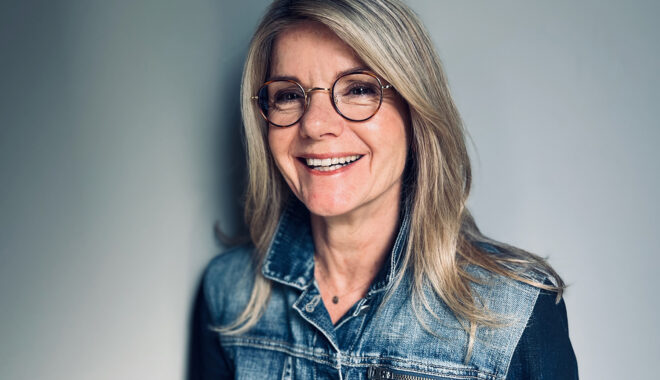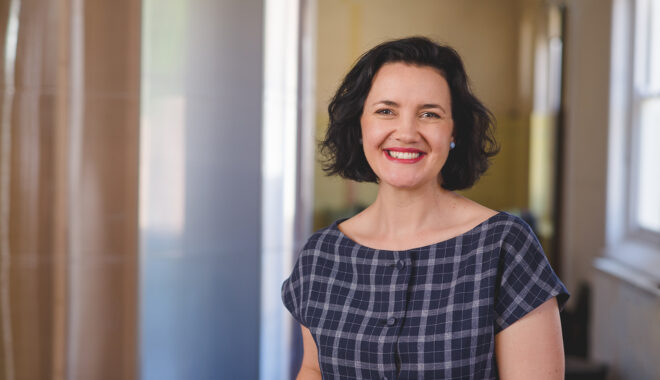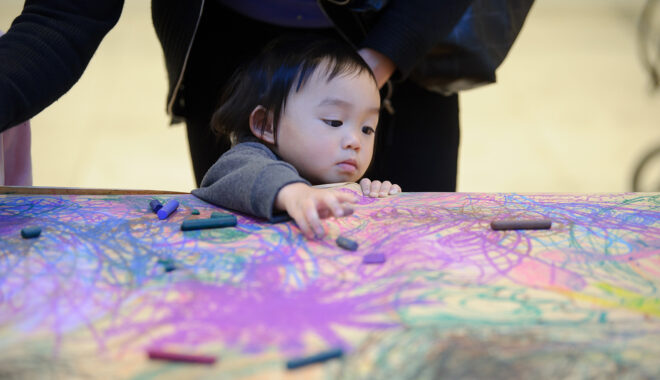27 Jun 2025 Announcements
World Expo 2025 Osaka
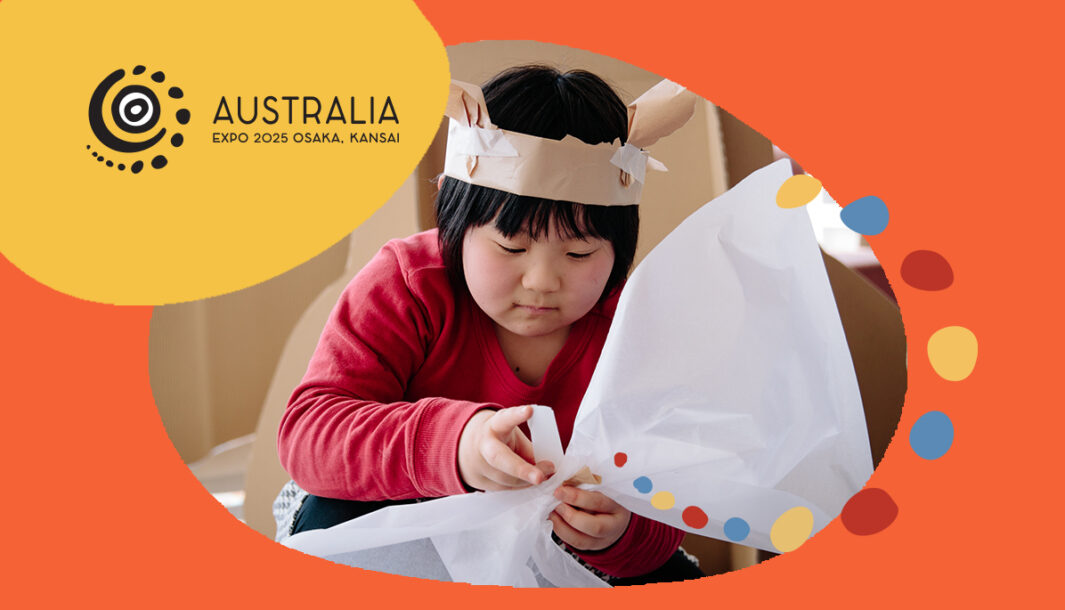
Polyglot Theatre is honoured to be delivering Paper Planet workshops in the Australia Pavilion at World Expo 2025 Osaka. Held every five years since 1851, World Expo is one of the oldest, largest international events. It celebrates achievement, innovation, collaboration, and cooperation. Supported by the Australian Government, Polyglot is part of a cohort of companies and artists showcasing our national creativity on a global platform.
World Expo 2025 Osaka is taking place from 13 April to 13 October, in Yumeshima. More than 150 countries and regions are gathering to respond to the Expo theme, “Designing Future Society for Our Lives”. The focus is designing a sustainable society that supports social challenges, emerging sciences and evolving technologies.
The Australia Pavilion theme “Chasing the Sun” explores Australia’s unique energy, our diverse and warm people, our talent and creativity, and our stunning natural environment. From 17-27 July, children and their families can join artists from Polyglot and NPO Acchi Cocchi, a Japanese organisation that delivers music and arts projects, in a small grove of tall cardboard trees at the Australia Pavilion for free, drop-in creative paper play and making workshops.
This engagement is the latest chapter in Polyglot’s warm, long-standing relationship with Japan. In 2011, the country’s east coast was devastated by a massive tsunami and Minami Sanriku was one of the areas most affected. As part of the Australian Government disaster recovery initiative, Polyglot was invited to visit the town, offering our creative play, art and theatre as healing tools.
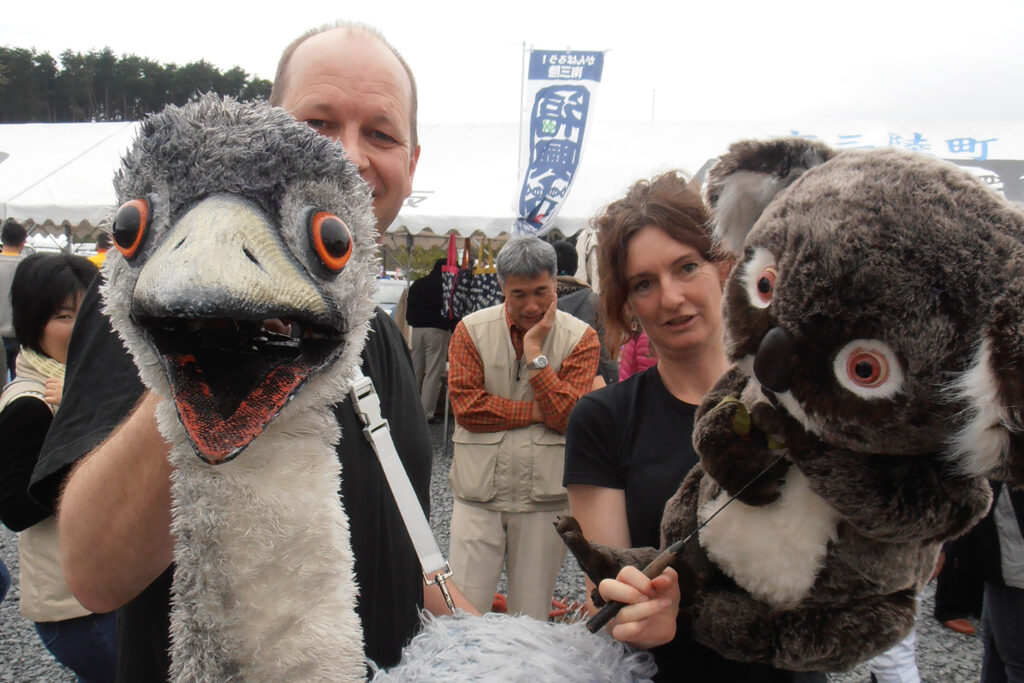
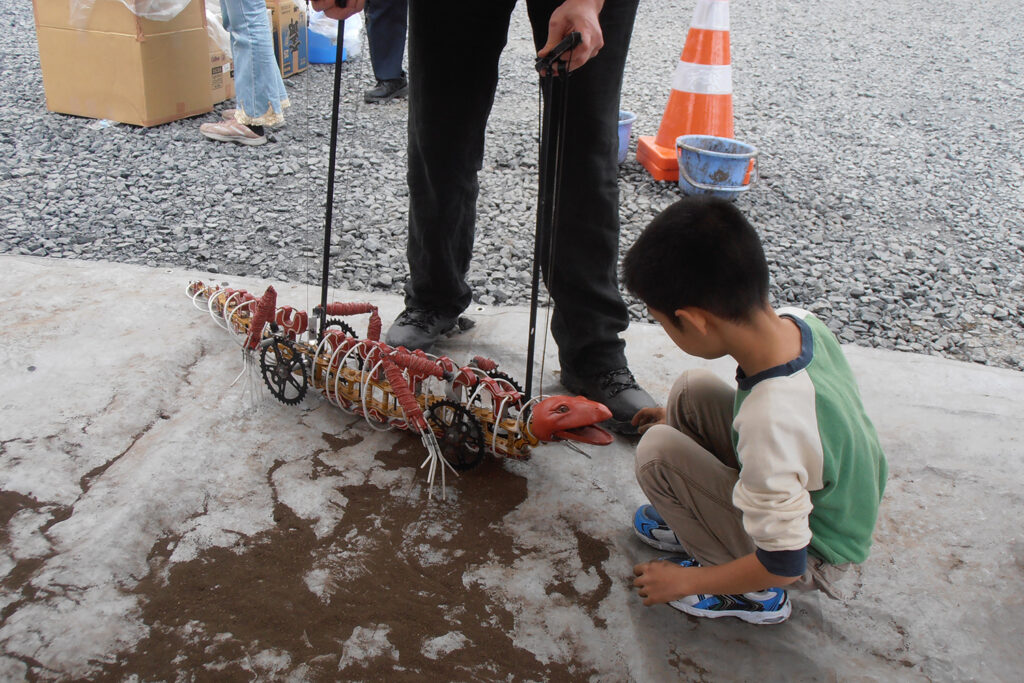
Minami Sanriku, 2011.
From this project, Polyglot returned regularly throughout the community’s long journey of recovery. In 2013, we took a special installation of We Built This City (We Built This Town) to Minami Sanriku, along with a building project where children designed and built their own little dream houses. In a place where so many houses were lost, this was a powerfully hopeful project.
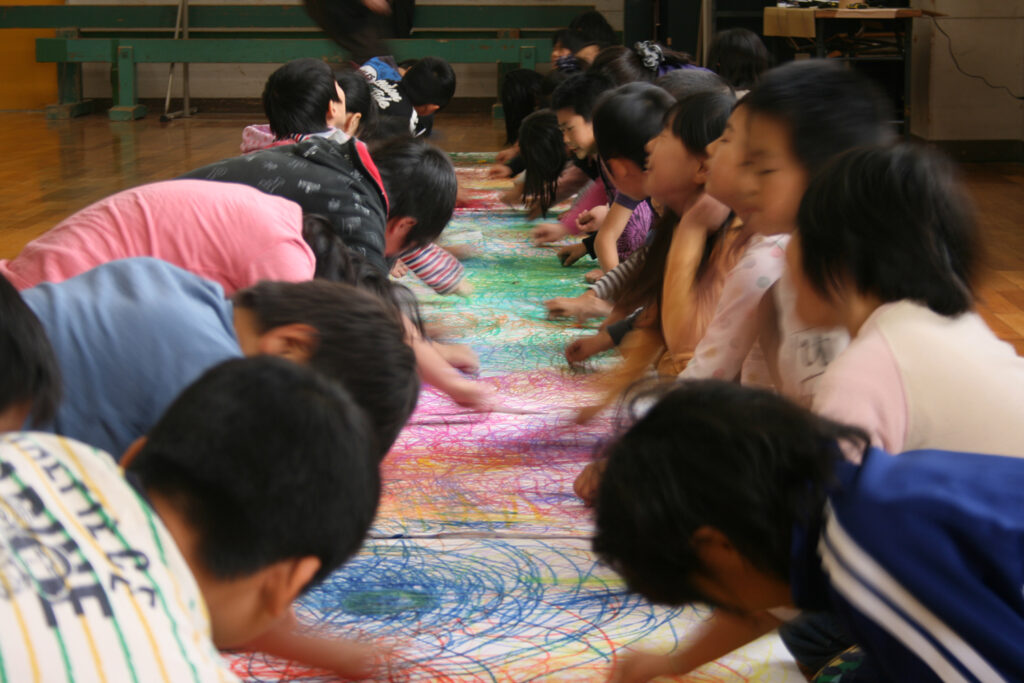
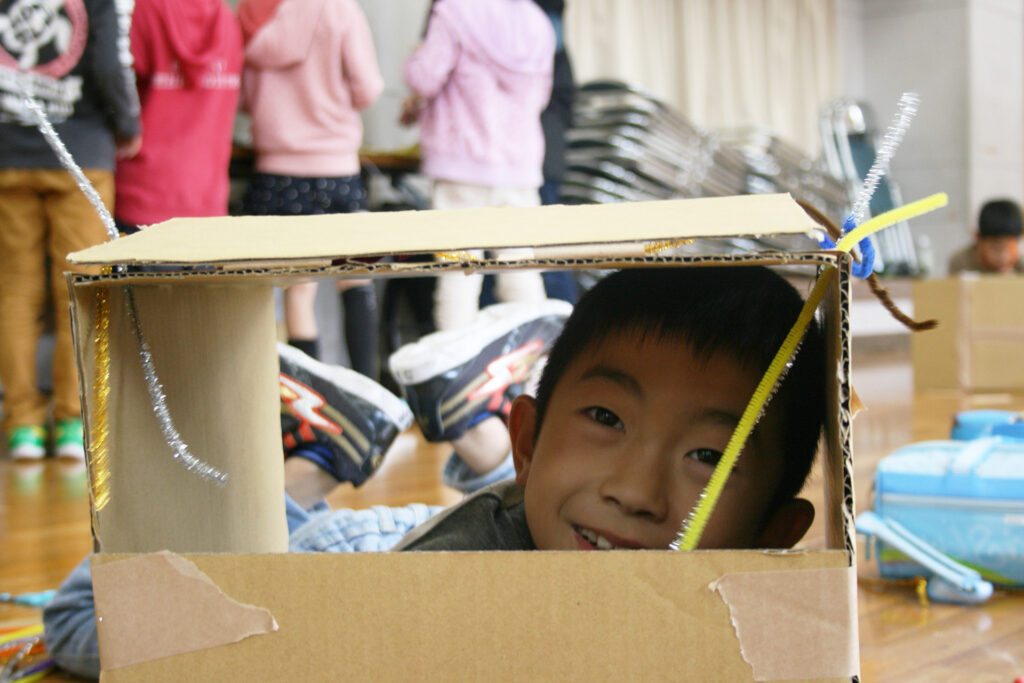
We Built This Town. Photos: John Bailey.
In 2015, we collaborated with Acchi Cocchi for the first time, focusing on disaster-affected communities in the Tohoku region. Together we made Tusgi Wa? (What Next?) in the form of a giant Kamishibai (a form of Japanese street theatre and storytelling) presenting a popular local story through drawings and puppetry. The work created links between elders and children and demonstrated how major disaster recovery is more complex than simply rebuilding infrastructure.
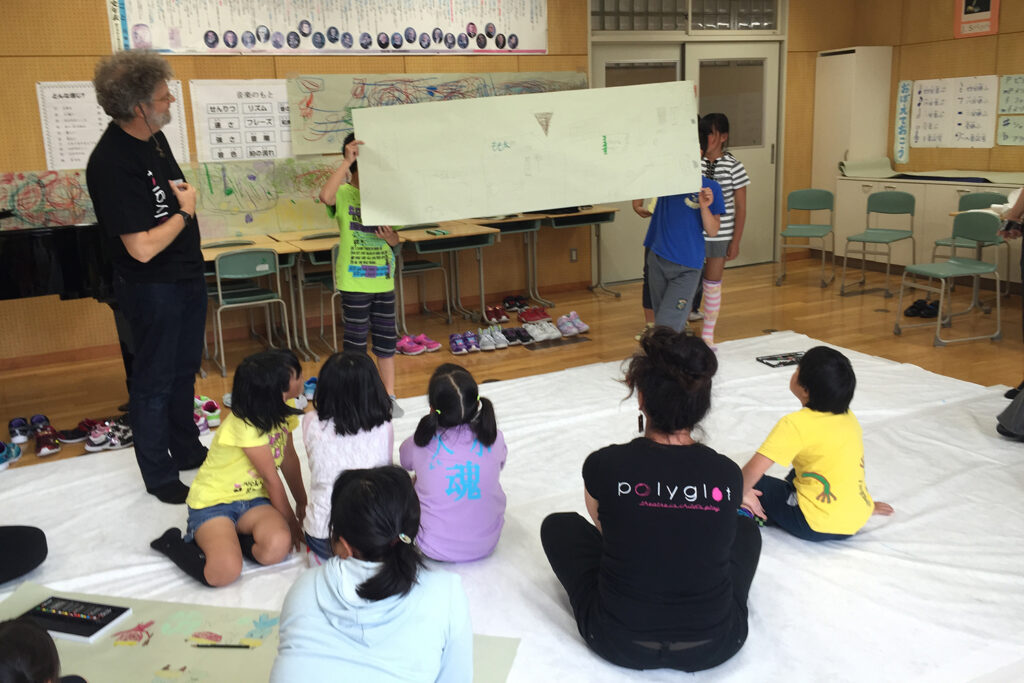
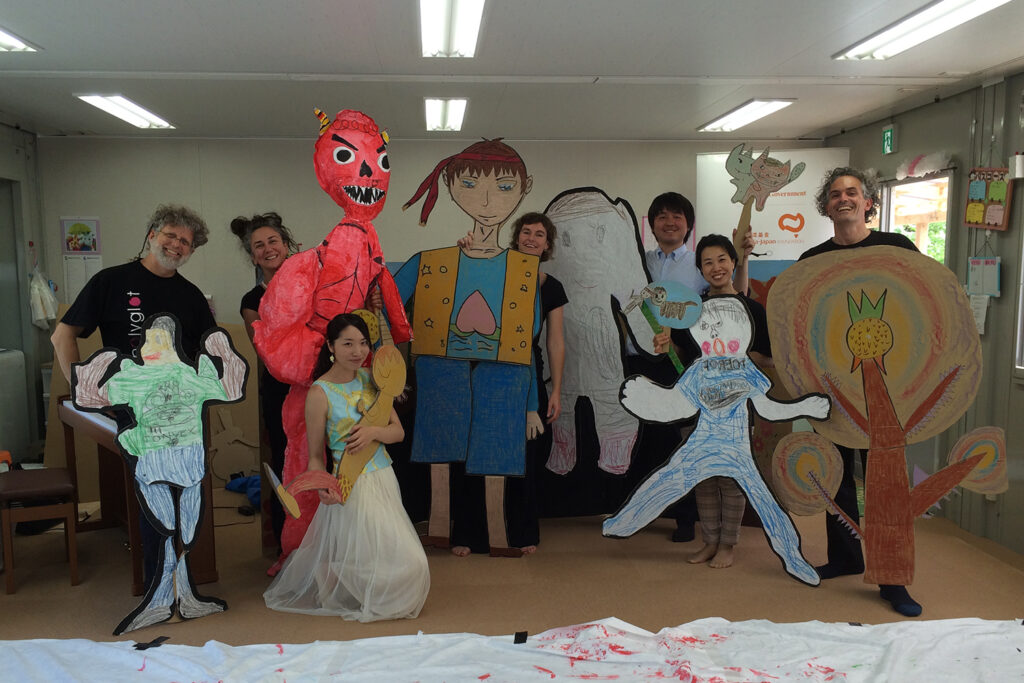
Tusgi Wa? (What Next?), 2015. Photo (right): Stefanie Robinson.
In 2018, again in collaboration with Acchi Cocchi, we presented performances of Paper Planet in all five Minami Sanriku elementary schools (Shizugawa, Tokura, Iriya, Isatomae and Natari) for students in Years 1 and 2.
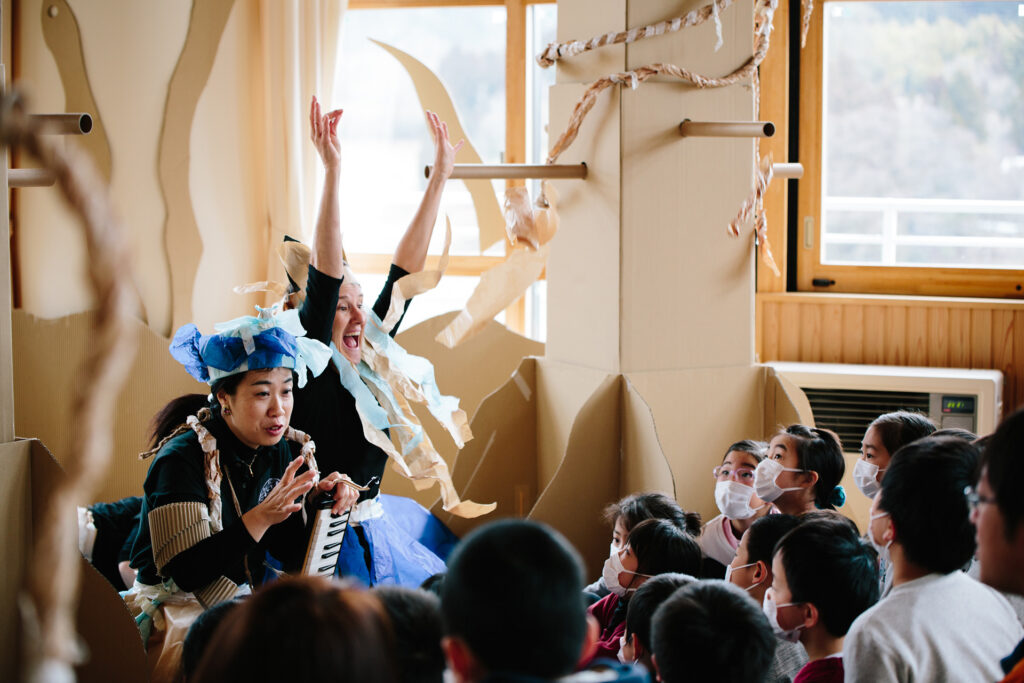
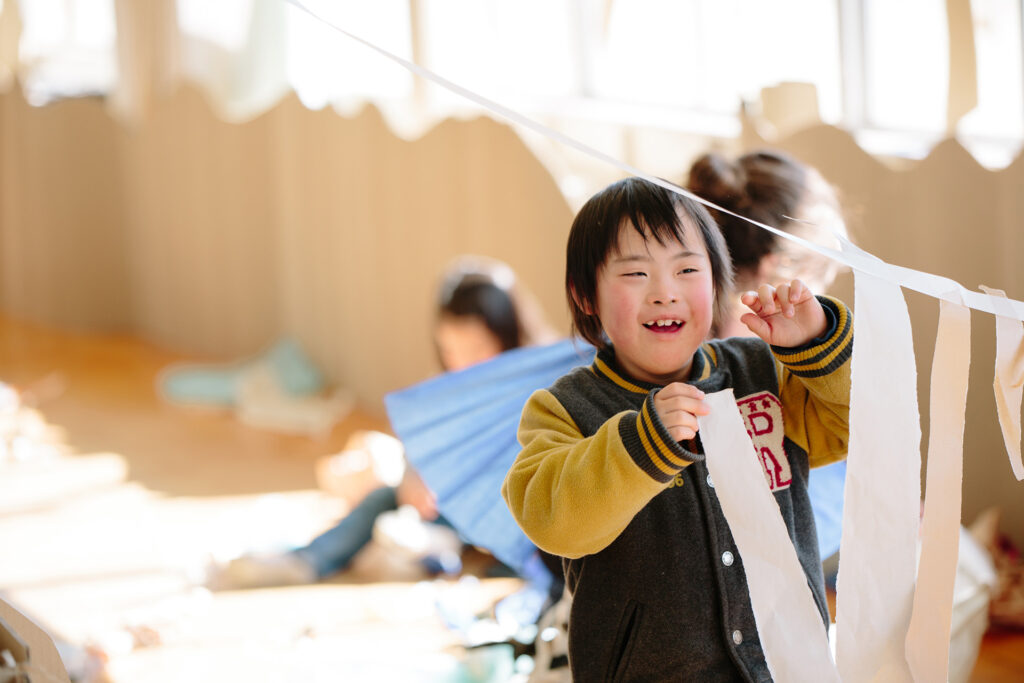
Paper Planet, 2018. Photos: Ai Ueda.
In 2023, Polyglot was thrilled to return to Japan and reunite with Acchi Cocchi. Together, we delivered performances across the Yokohama region, in specialist schools, elementary schools, and a children’s hospice. This project, titled Over the Sea, had been postponed from 2020 due to COVID-19, and the subsequent travel and touring restrictions.
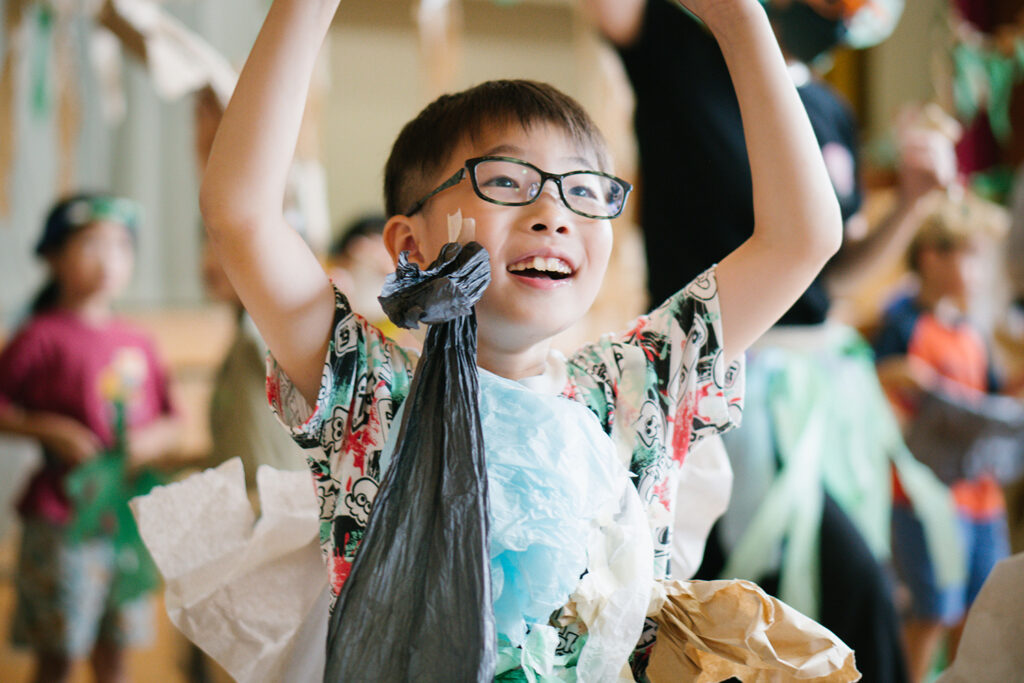
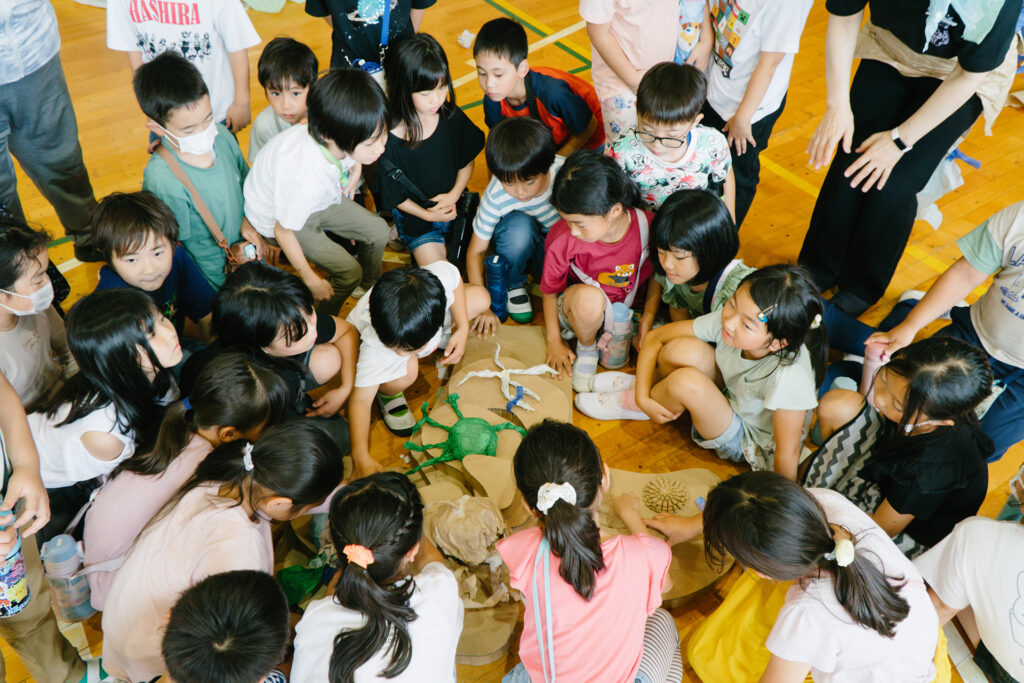
Over the Sea, 2023. Photos: Ai Ueda.
Polyglot is deeply grateful for the generous support that has made these complex and nuanced intercultural projects possible. We have been assisted by the Australian Government, the Australia-Japan Foundation of the Department of Foreign Affairs and Trade, the Australian Embassy in Japan, and the Victorian Government through Creative Victoria. We are very proud to be sharing our unique brand of theatre at the prestigious World Expo 2025 Osaka and look forward to creating and playing with children and families at the Australia Pavilion.
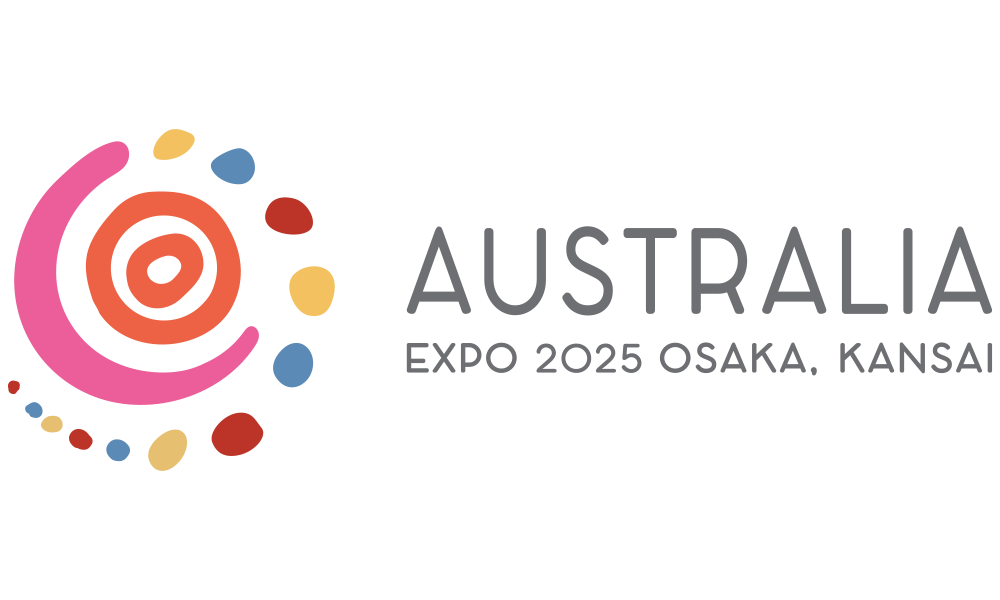
“International collaboration for Polyglot is very important. We really value meeting new people, and working in different cultural contexts. It’s very rewarding as an artist, and really helps us to grow as our company. Every time we do a new collaboration, every time we work with a new community of families or children, we learn more.”
Rainbow Sweeny, Producer



